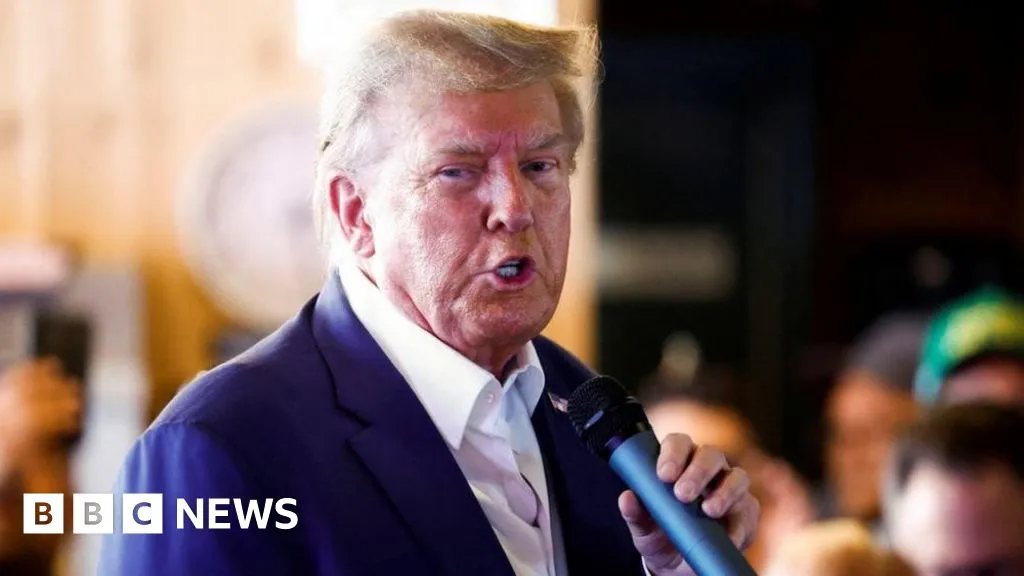cross-posted from: https://sh.itjust.works/post/2916091
Former US President Donald Trump has been charged with attempting to overturn his 2020 election loss in the state of Georgia.
He and 18 others have been indicted on counts that include racketeering in a 41-charge document issued by a Fulton County grand jury.
The indictment marks the fourth time Mr Trump has been criminally charged this year.
He has denied the accusations in all cases.
Fulton County District Attorney Fani Willis launched an investigation in February 2021 into allegations of election meddling against Mr Trump and his associates.
The list of defendants indicted late on Monday night includes former Trump lawyer Rudy Giuliani, former White House chief of staff Mark Meadows, former White House lawyer John Eastman and a former justice department official, Jeffrey Clark.
The indictment says the alleged co-conspirators “knowingly and willfully joined a conspiracy to unlawfully change the outcome of the election in favor of Trump”.
The charge sheet also refers to the defendants as a “criminal organization”, accusing them of a number of crimes, including:
False statements and writings Impersonating a public officer Forgery Filing false documents Influencing witnesses Computer trespass Conspiracy to defraud the state Theft and perjury.The most serious charge, violating the Racketeer Influenced and Corrupt Organizations Act (Rico) Act, is punishable by a maximum of 20 years in prison.
The act - designed to help take down organised criminal syndicates like the mafia - helps prosecutors connect the dots between underlings who broke laws and those who gave them marching orders.



Yes. The crime (and the criminal) legally hasn’t been “confirmed”. The point of a trial is to “confirm” it.
For example, there’s probably at least 50 million people who believe no crime occurred.
They’re WRONG, of course, but the point of the trial is to prove them wrong.
Got it now, thanks.
I had it in my head that there was some way to forfeit that presumption of innocence, but couldn’t imagine what that way was.
But apparently there is not. Thanks
The only person who can “waive their innocence” (i.e. “admit guilt”) is the defendant. They can make this admission in a court by pleading guilty. There are many valid reasons why a definitely guilty person would not admit guilt. One of them being that the crime they are charged with may be worse then they think they are guilty of (example first degree murder). So they will plead not guilty and hope that the trial shows that they are only guilty of second degree murder. The defendant may even admit to murdering someone during the trial, but may still believe that they are not guilty of fist degree murder and are only guilty of second degree. That decision is left to a judge or jury depending on various circumstances.